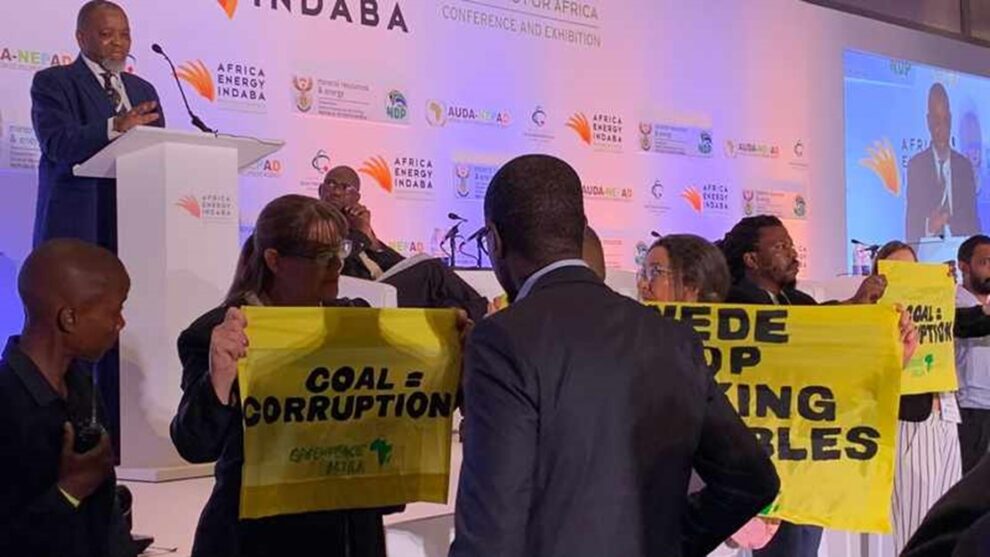African energy ministers yesterday wrestled with plans to meet the continent’s vast energy requirements and meet targets of the global energy transition in only a few decades, in the context of an industry fragmented by different country policies and where energy projects can take years just to reach financial closure.
Speaking at the 2023 African Energy Indaba yesterday, Mineral and Energy Resources Minister Gwede Mantashe, who allowed protesters with anti-coal burning and pro-renewable energy placards to stand in front of the stage while he spoke, said there must be a balance between energy demand for socio-economic development and energy supply that is premised on low carbon emissions, and he reiterated that, in the South African context, coal-fired power stations would be part of the country’s energy mix for many years to come.
Sean Cleary, of the Carnegie Artificial Intelligence & Equity Initiative, drew the gauntlet even tighter when he told delegates that some 600 million people in sub-Saharan Africa alone currently did not have access to electricity, and that its population was expected to double by 2050, and that if it did not meet its energy requirements by that time, it was unlikely to ever do so.
Malawi’s energy minister, Ebrahim Matola, said African countries needed to find ways to finance their own projects and develop their own regulations, policies and targets on energy, and the sector needed to consume the lion’s share of Africa country national budgets, because no country could develop without electricity.
He questioned why African countries needed to pay for electricity projects in US dollars and not their own currencies, why African countries needed to abide by World Bank energy loan conditionalities which the countries could not afford, and why African countries needed to comply with international donor rules and regulations in their own countries.
He said Malawi had been struck by climate-related disasters in that its hydro-electricity plants had experienced shutdowns recently due to flooding and several cyclones. He said African countries needed early warnings systems to prevent such disasters.
Dr Kandeh Yumkella, Sierra Leone politician and CEO of The Energy Nexus Network, said it had taken 20 years for four West African countries to recently conclude an electricity grid connection agreement, far too long considering the time constraints of the African energy crisis. He said many more interconnection agreements were required between African countries so that energy could be traded between them.
“We have to take charge and recognise the urgency that exists. Without energy we can’t add value to the mineral resources that exist in Africa,” said Dr Yumkella.
He said Europe was concerned about migrants from Africa, but there would be many more millions of migrants if African countries did not address access to energy in their communities.
Mantashe said differences about the pace, scale and how to balance the energy transition would always exist. However, the problems that beset the continent’s energy industry needed to be resolved without the encirclement pressure to please others first.
He said in order to resolve load shedding, the low energy availability factor at six of Eskom’s coal power stations needed to be improved, while there needed to be greater focus on emergency energy sources, including the Karpowership-based power generation solution, which its detractors had insisted was too expensive, but Mantashe said how did one measure that impact, against the impact on the economy of load shedding.
He said placards at the conference claiming he had blocked renewable energy projects in South Africa were not true, as more renewable projects were approved in two years since 2019 than in the four years to 2015 from 2011, when renewable energy projects were first introduced to the regulatory framework.
Source : iol.co.za
















